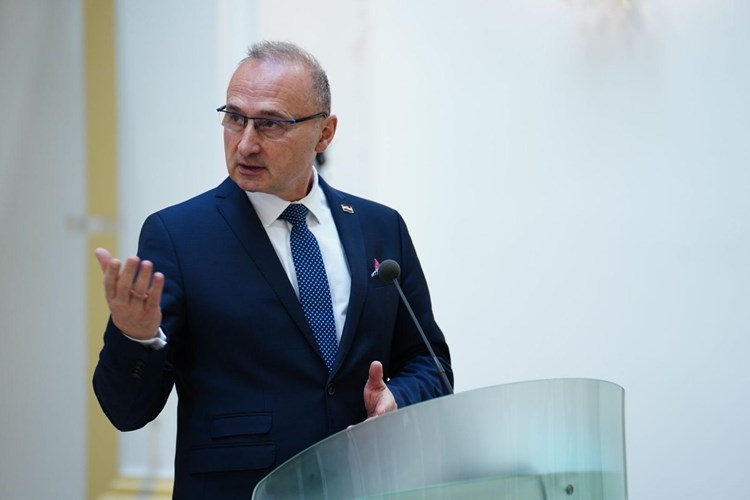- Published: 17.03.2021.
Minister Grlić Radman: Serbia's response to Croatia's protest note unprecedented in diplomacy
Croatian Foreign Minister Gordan Grlić Radman said on Wednesday that his Serbian counterpart Nikola Selaković's response to a Croatian protest note over threats against Croats in Vojvodina was unprecedented in diplomacy
Croatian Foreign Minister Gordan Grlić Radman said on Wednesday that his Serbian counterpart Nikola Selaković's response to a Croatian protest note over threats against Croats in Vojvodina was unprecedented in diplomacy and that it was neither European nor good-neighbourly.
This Zagreb-Belgrade dispute began on 4 March when the Subotica City Council adopted a decision to change the city statute and initiated the introduction of the so-called Bunjevci language as official in this city in the northern province of Vojvodina, despite objections from the Democratic Alliance of Croats in Vojvodina, the Croatian National Council and the Institute for the Croatian Language.
The Croatian community in Serbia believes the Bunjevci idiom is a dialect by Croats in northern Bačka, not a standard language, and that therefore it cannot be excluded from Croatian regional idioms.
Croats in Vojvodina asked the Serbian authorities to apply the same logic used by the Subotica City Council, the percentage of the population represented, and introduce Croatian as an official language throughout Vojvodina.
The Croatian community then started receiving threats, which prompted Croatia's protest note.
"We waited for several days for the Serbian authorities. They did not respond nor condemn those personal threats directly sent to Croatian community web portals and e-mails," Grlić Radman said on Croatian Radio.
"The Croatian community was not supported by the Serbian authorities so it asked for Croatia's support," he added.
On Saturday, Selaković called Croatia's protest note "one of the stupidest and most pointless notes I have received to date" because, he said, Croatia was complaining about ugly outbursts on social media while Croatian media made "the most monstrous and most brutal insults" against Serbia's top politicians, notably President Aleksandar Vučić.
Grlić Radman said it was not about comments on social media but direct threats and that Selaković's response "is unprecedented in diplomatic practice."
"The fact that the Subotica authorities later arrested one or two citizens shows that our note made sense, and it was also commended by Croats in Vojvodina," he said, adding that Selaković's statement "isn't conducive to the advancement of our relations" and that it was "not only not European, but not good-neighbourly either."
"If Serbia wants to join the European Union, it certainly can't continue with this narrative," he said, adding that building good-neighbourly relations calls for solving outstanding issues, such as missing persons from the 1991-1995 Homeland War and the status of the Croatian minority in Serbia, which does not have the same rights as the Serb minority in Croatia.
Text: Hina



